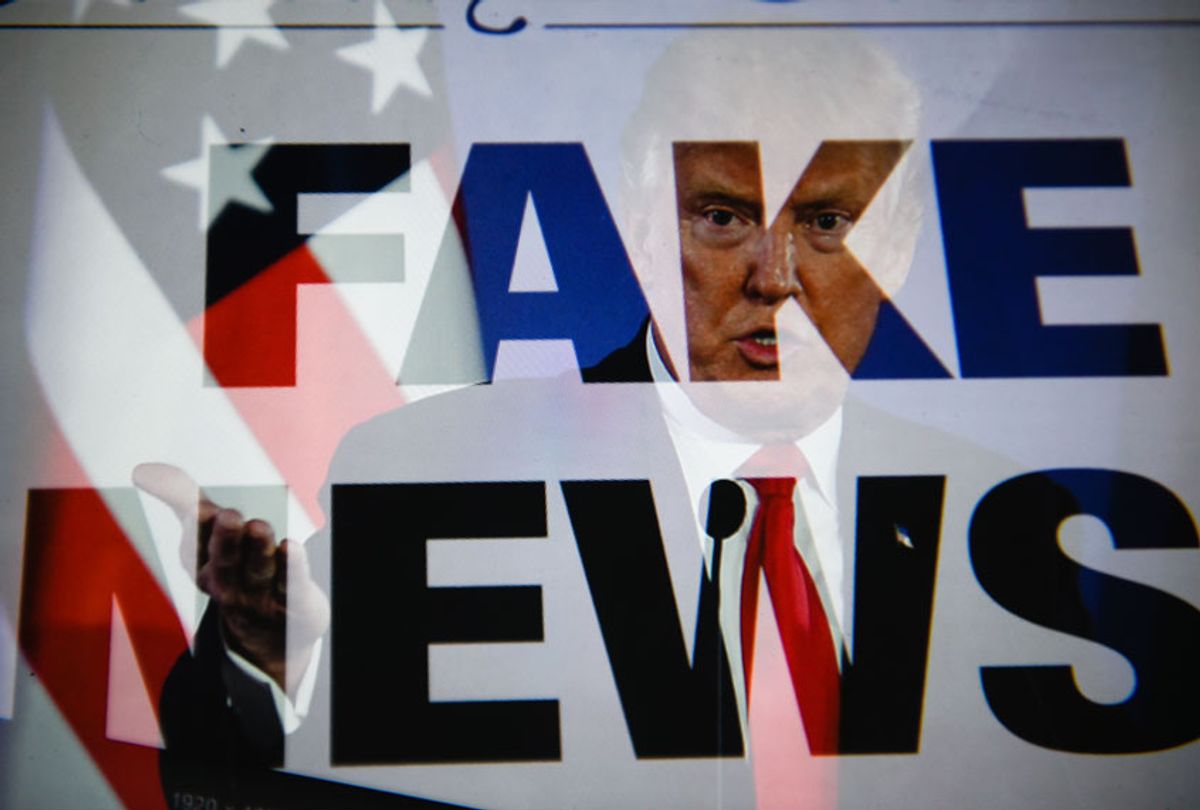Tessa Jolls, president of the Center for Media Literacy, published a report last month entitled "Building Resiliency: Media Literacy as a Strategic Defense Strategy for the Transatlantic." It reads like a blueprint for indoctrinating students in corporatism and militarism under the auspices of media literacy education. Jolls received a Fulbright-NATO Security Studies Award to study "aspects of the current information ecosystem and the state of media literacy in NATO countries."
Let's offer some historical context: NATO during the Cold War and has long since outlived its original stated purpose of combating the spread of communism. Political sociologist Peter Phillips has argued, for instance, that NATO has morphed into a global army that engages in questionable conflicts and human rights abuses in an effort to serve the "transnational capitalist class."
As with the crisis created by the manipulated term "fake news," media literacy is being weaponized by organizations and individuals who seek to increase their power by influencing the public's perception of reality. For example, Steve Bannon, former White House chief strategist for Donald Trump, has a long history of spreading false information. Form 2012 to 2018, he was the executive chairman of the Breitbart News site, which has manipulated videos, manufactured stories, and spread baseless conspiracy theories. Starting with Bannon's tenure, Breitbart published articles lauding "media literacy" as a way to combat "fake news," proclaiming that the site's late founder, Andrew Breitbart, integrated media literacy into the platform. But what Breitbart means by the term — especially given the site's track record — seems to run counter to traditional definitions of media literacy.
The standard definition of media literacy used in American education is "the ability to access, analyze, evaluate, create and act using all forms of communication." In response to the post-2016 panic over fake news, there was a demand for more media literacy education in schools. This provided a window of opportunity for major media companies — which had long sought to enter the classroom to advertise their products and collect student data — to move rapidly toward indoctrinate students with corporate propaganda under the "media literacy" umbrella.
Want a daily wrap-up of all the news and commentary Salon has to offer? Subscribe to our morning newsletter, Crash Course.
Jolls' report only serves to empower such efforts, arguing that corporate "allocations for media literacy education are few and far between." It also appeals directly to the military-industrial complex — meaning the alliance between the military and related defense and national security industries — in calling for "funding and programming from all corners: government, foundations, and the private sector (tech and media companies, other corporations)." Most Big Tech companies emerged from the military industrial complex, and continue to serve its interest in many ways.
Rather than advocate for a critical standard of media literacy education, one that would account for the power dynamics invested in NATO and its long history of working against democracy and social justice, Jolls lauds the "values that NATO states" represent, saying they represent an "excellent foundation" for "media literacy initiatives." Indeed, to normalize NATO values in education, Jolls suggests what amounts to a psychological operations campaign, or psy-op, to spread NATO's version of media literacy to the public through "mass media, media aggregators such as AP, Reuters and LexisNexis, social media and influencers." The report calls on NATO to "nurture grassroots efforts," which sounds more like astroturfing.
The same military and intelligence communities now calling for "media literacy" have been producing and spreading fake news, at home and abroad, for at least 70 years.
Jolls' report ignores that members of the same military and intelligence communities that she lauds have produced and spread fake news to U.S. citizens, from the time of Operation Mockingbird in the mid-20th century up through the present on various social media platforms. She also never discusses public efforts to disempower the military-industrial complex's ability to dictate truth. Earlier this year, for instance, critics from both the left and the right successfully lobbied to have the Department of Homeland Security scrap its Disinformation Governance Board, which was altogether too reminiscent of the Ministry of Truth in George Orwell's "1984."
Instead, Jolls seems to be following the lead of similar dubious media literacy projects from the military-industrial complex, such as the NewsGuard browser extension. Described as an "Internet Trust Tool" and positioned as an objective tool for educators, NewsGuard has an advisory board loaded with military veterans and former intelligence officers. Its rating system has a clear ideological bias: NewsGuard consistently promotes establishment and legacy media sources that echo a narrow range of status-quo opinions — even when they have been proven to spread false information — and downgrades independent and alternative media outlets that challenge institutions of government, industry and the military. Jolls mirrors NewsGuard's top-down approach to media literacy education, calling on NATO leaders to determine "the intent and purposes for media literacy interventions" by choosing the "social problem or behavior or ideology" or issue for educators to focus on.
It is certainly true that we need a critical media literacy curriculum in the U.S. — but that's not what Jolls and NewsGuard are promoting. Real media literacy education empowers students to be autonomous and sophisticated media users, who ask their own questions about who controls media messaging and interrogate the power structures behind them. When a student is left dependent on the military-industrial complex to analyze content for them, that's not education. It's indoctrination.



Shares